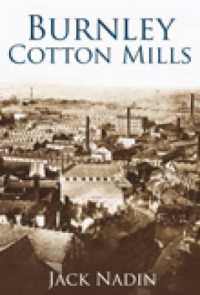- ホーム
- > 洋書
- > 英文書
- > Politics / International Relations
Full Description
Revolutionary anxieties sheds light on an unexplored dimension of the 2011 Egyptian revolution: the anxieties experienced by Cairo-based liberal elite, socialites, and cultural actors who opposed the rise of the new political actors, the Muslim Brotherhood. This book provides fresh insights into the failure of the Egyptian revolution by examining the perspectives of those who had a vested interest in maintaining the status-quo. It engages with post-colonial theory and examines the elite milieu in Cairo through the lenses of gender and race. Based on over two years of ethnographic research in various elite locations such as the Cairo Opera House, an Egyptian-European film festival, and an elite sporting club in Cairo, the book illustrates how members of Egyptian liberal upper class insisted on their privilege in a moment when the country's class hierarchies were challenged. By revealing the prevalence of counter-revolutionary sentiment among Cairo's liberal and affluent elite, the book tells an untold story of the Arab Spring.
Contents
Preface
Introduction
1 "Go forward to the glorious past": Politicized nostalgia
2 Attack on Civilization: saving the Egyptian cinema culture
3 The politics of high culture: Anxieties at the Opera House
4 The "Others": The ugly, the ignorant servant, and the abstract poor
5 Gendered anxieties: Saving the modern woman
6 Postcolonial elites, identity, and memory culture
Conclusion
Epilogue








